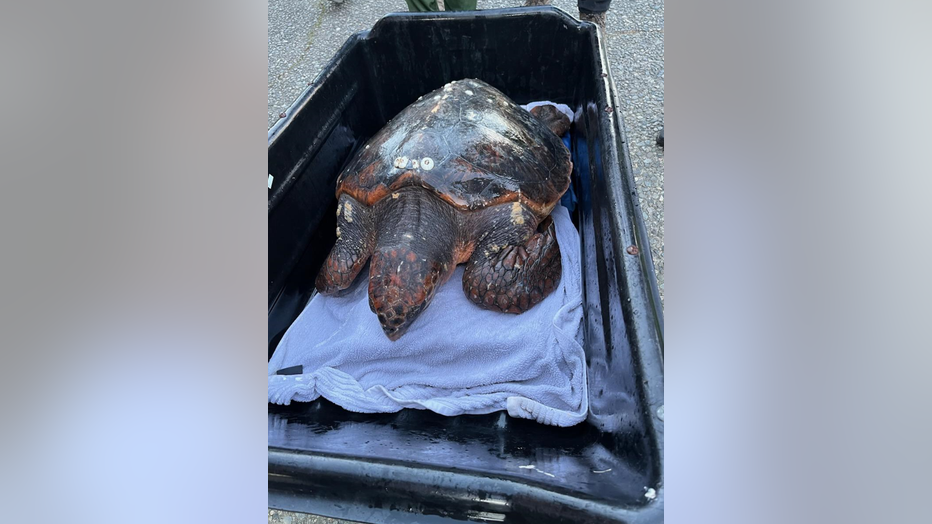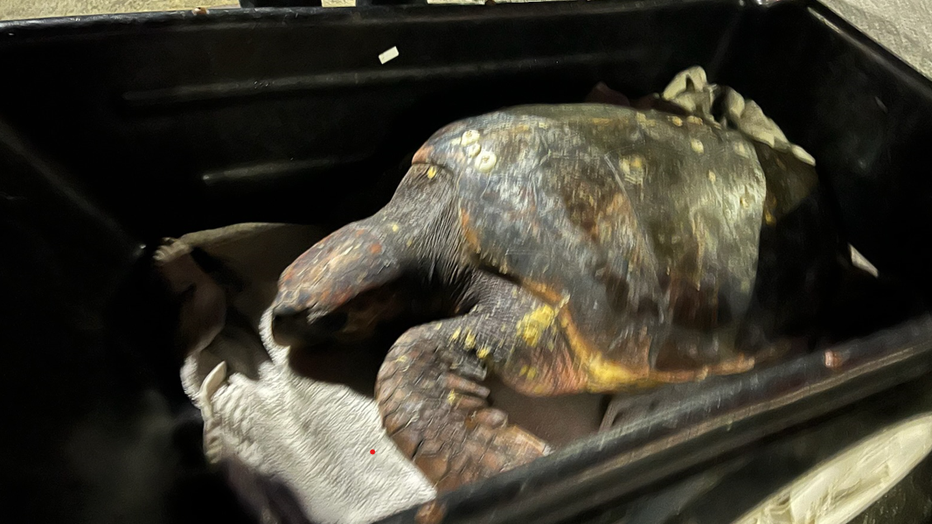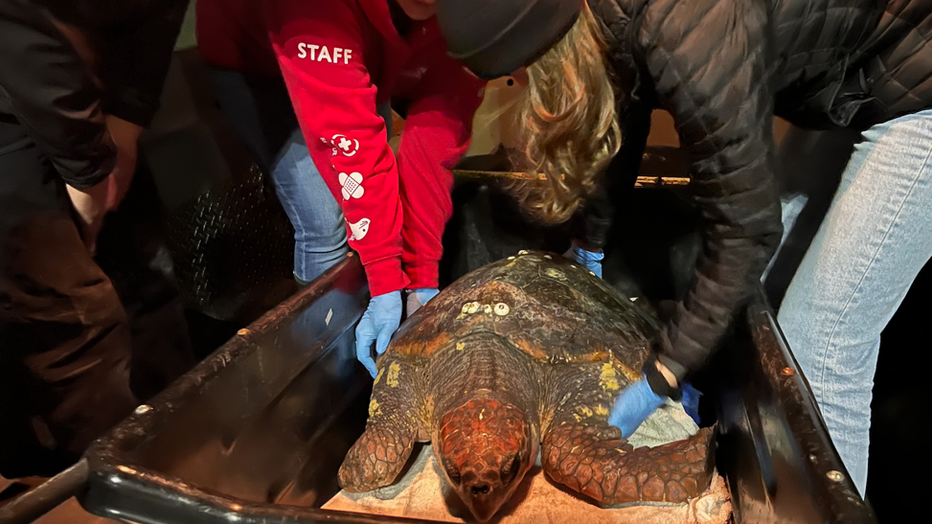Sea turtle rescued near Vancouver Island after crabbers spotted her struggling in the cold water

Sea turtle rescued from cold BC waters
An incredibly rare visitor to the Pacific Northwest is lucky to be alive after she was rescued far from home in the cold waters near Victoria, British Columbia.
VANCOUVER, B.C. - An incredibly rare visitor to the Pacific Northwest is lucky to be alive after she was rescued far from home in the cold waters near Victoria, British Columbia.
Moira, as she's now being called, is only the second known sea turtle to wind up in BC waters.
The turtle was spotted floating in the area of Pedder Bay by a boater, about 60 miles north of Seattle. Her body temperature was so low that her rescuers said she was near death.
Scientists said she was suffering from hypothermia, and they are in the process of slowly warming her up. After a few days of care, her team says, "so far, so good."
Last Sunday, Moira's luck turned around when a man checking crab traps spotted her struggling in a pile of kelp.
"She was pretty lethargic," said Sean Hutchinson of Victoria.
The turtle was riding with the current. She was cold and having difficulty paddling.
"There’s a kelp pile about 100 yards away, so for whatever reason, I decided to go over there," said Hutchinson.
Fate was on the turtle's side when Hutchinson decided to go clean up some trash, including a hose and bucket, that were caught up near the kelp pile. He then spotted what he said looked like a chestnut, or a strange-looking log.
"As we pushed the kelp away to see what it was, the head kind of popped up between the pieces of kelp and looked at us, and it was an oh my god moment," said Hutchinson.
He knew the cold waters in the Pacific Northwest were no place for a sea turtle, so he started making calls for help. Eventually, he got in touch with a friend who knew Dr. Anna Hall, the principal scientist and zoologist at Sea View Marine Sciences.
"The turtle would have died if she had stayed in those waters, either from the cold temperatures or by a boat," said Hall.
Hall and Hutchinson provided the pictures of Moira below.

Hall and her husband secured a boat, racing to the father and son duo, who helped them pull the turtle from the water, which she says was at 10 degrees Celsius or 50 degrees Fahrenheit.
"The turtle’s core temperature had dropped to 8 degrees," said Hall.
Hall and her husband used a borrowed wheelbarrow and boat seat cushions to create a stretcher, which helped them load the 70 pound turtle into her car.

Hall said they had to keep the heat off in the vehicle in order to keep the turtle cool and they sprayed her down with water during the car and ferry ride to Vancouver.
"Our hands are frozen, and we have to keep the sea turtle wet," said Hutchinson.
At one point, Moira stopped moving.
"We didn’t see any response to spraying her down, and we couldn’t hear any breathing," said Hall.
However, upon meeting the rescue team in Vancouver, a miracle happened.
"The turtle suddenly took a gigantic breath in, and everybody had the biggest sigh of relief," said Moira.
"It was pretty humbling when it took that giant deep breath, and we loaded it into the ambulance," said Sean.
Hall says the turtle is slowly recovering.
"It was a truly memorable experience to know you did something so good," said Sean.
Hall says loggerhead turtles breed on the beaches of Japan, then disperse across the North Pacific, typically, landing a bit further south in warmer waters. Although it's unclear what happened to bring Moira to the Pacific Northwest, experts say the turtle may have ridden here on a warmer current, which ultimately landed her in trouble in colder waters.


